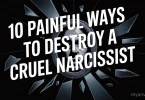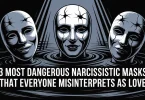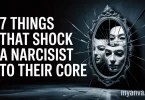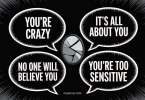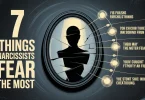So, let’s talk about protection and betrayal. I heard a story the other day about a woman in a narcissistic relationship. What else is new? But she was never sure if her partner was truly narcissistic. She wondered if he was just busy, ambitious, or simply not a “feelings” kind of guy. She knew that he grew up with a cold and remote father and a very silenced mother. In her case, her long-term partner was never her advocate or ally. Her sense of not being safe with him came from the feeling that he never protected her.
The Lack of Protection
When someone would mistreat her, for example, even when dealing with a contractor working on their house, there was no attempt from her husband to listen to her experience or support her. More often than not, he seemed to take the side of the other person. He’d say things like:
- “Well, come on, they know what they’re talking about.”
- “Don’t be so demanding.”
- “Maybe they’re right, and you’re the one who doesn’t know what you’re talking about.”
For her, it wasn’t about right or wrong; it was the sense that, in the wake of being mistreated or disrespected, her life partner wouldn’t step in, advocate for her, or even listen to her. He wouldn’t be her person. Instead, he’d assume the other person must be right, dismissing her feelings entirely.
Related Topics:
9 ways to deal with toxic people
9 Signs Someone is a Narcissist
7 Ways Narcissistic Abuse Destroys You Emotionally
4 Ways to Torture The Narcissist
10 Reasons Narcissists Cut You Off Abruptly
She also noted that if he had been treated this way, he would have spun out of control, screaming, demanding to speak to a supervisor, or even threatening to sue. His volatile reactions were part of the reason she stepped in to manage more of these situations in their household.
The Ultimate Betrayal in Narcissistic Relationships
This dynamic replicates in every single narcissistic relationship. While manipulation, gaslighting, betrayals, future faking, rage, passive aggression, silent treatment, entitlement, and low empathy are all the “in-your-face” traits, we often lose sight of the ultimate betrayal that happens all the time in these relationships: narcissistic people do not protect the people in their lives.
What Does It Mean to Be Protected?
I don’t mean protection like a bodyguard. I mean:
- A person who doesn’t deny your reality.
- A person who doesn’t automatically take the perspective of the other person and assume they’re right while you’re wrong.
- A person who doesn’t ask, “What did you do to piss them off?”
- A person who sits with you during uncomfortable times, like when you’re getting a medical diagnosis or bad news about work.
- A person who doesn’t mock or humiliate you in front of others.
- A person who believes you, cares for you during physically vulnerable times, and doesn’t treat you like you’re crazy.
- A person who doesn’t take advantage of your vulnerabilities.
That’s protection. And when we love people the right way, we protect them. I don’t mean bubble-wrapping them, hovering over them, controlling them, or doing everything for them that’s not protection; that’s control.
The Narcissistic Parent and Lack of Protection
By definition, the narcissistic parent does not protect their child. They demand; they do not support. They do not attune, bear witness, or advocate. If they do advocate, it’s to further their selfish ego interests, like demanding their child get a spot on a team or in a preschool. That’s not protection; that’s exerting their muscle.
A child who is fortunate enough to be protected doesn’t have to devote so many psychological resources to self-protection. The less protected and more harmed the child, the more they fragment internally, living in survival mode and unable to take risks or live authentically.
The Lack of Protection in Intimate Relationships
In narcissistic intimate relationships, this lack of protection is a classic dynamic that often gets missed. We focus so much on the lying, cheating, gaslighting, and manipulation, but when you look back, you realize you weren’t protected.
One of the greatest griefs in these relationships is recognizing that the narcissistic person might have stepped up and advocated for someone else even at your expense. This fosters a constant sense of “not good enoughness”: Why not me?
To not be protected in a narcissistic relationship means you were left to twist in the wind with no guidance, no hearing, no catching you when you fall (though they often cause the fall). You might have had to make difficult decisions around finances, children, or pets because of their irresponsibility, and consulting them would only lead to rage or being told there’s something wrong with you.
The Emotional Toll of Not Being Protected
When we are sad, crying, fragile, or in pain in a relationship, we want to feel comforted, soothed, and held. That rarely happens in a narcissistic relationship. Instead, there may be gaslighting:
- “Really? Are you crying about this? It’s not that big a deal.”
- Eye rolls, sighs, or outright rejection: “I do not have time for this.”
This feels cold, invalidating, and rejecting. At its core, they are not protecting you. You aren’t safe, and you become fragmented, living life in a restricted and anxious manner.
The Harm of What Doesn’t Happen
When we think of relational abuse, we often think of what someone does: yelling, screaming, hitting, lying, pushing, cursing, name-calling. But often, the most harmful things are what someone doesn’t do. We are not protected, and we don’t even register it, nor does the world. If someone pushes you or yells at you, others can understand that’s a problem. But when you’re not protected, there’s often the sense that, “You’re a grownup; you can protect yourself.”
It’s not that you can’t protect yourself; it’s that in a relationship, psychological safety is fostered by the idea that the person you’re with is there for you. Not that they agree with everything you do, but that they’re on your team. Just as a protected child takes more risks and allows their true self to form, the same happens in adult relationships. When we feel protected, we take more risks, trust ourselves, and don’t feel crazy.
Reflection: How Lack of Protection Affects You
Take a moment to reflect on the idea of protection or the lack thereof in your narcissistic relationships. How did it affect you? When you’re not protected, the world feels riskier. You feel less courageous, less “enough.”
When a person experiences trauma, the harm comes from both the traumatic actions themselves and the nature of the response afterward. If there’s no one to safely tell, no one who believes you, takes care of you, or advocates for you, the impact of the trauma is significantly worse. Instead of noting, “The people around me aren’t protecting me,” the child (or adult) internalizes: “I’m bad. I’m not protectable.”
The psyche and nervous system organize in a way that leaves you responding to the world as though it’s a dangerous place. The harm of narcissistic relationships is not just what happened but what didn’t.

